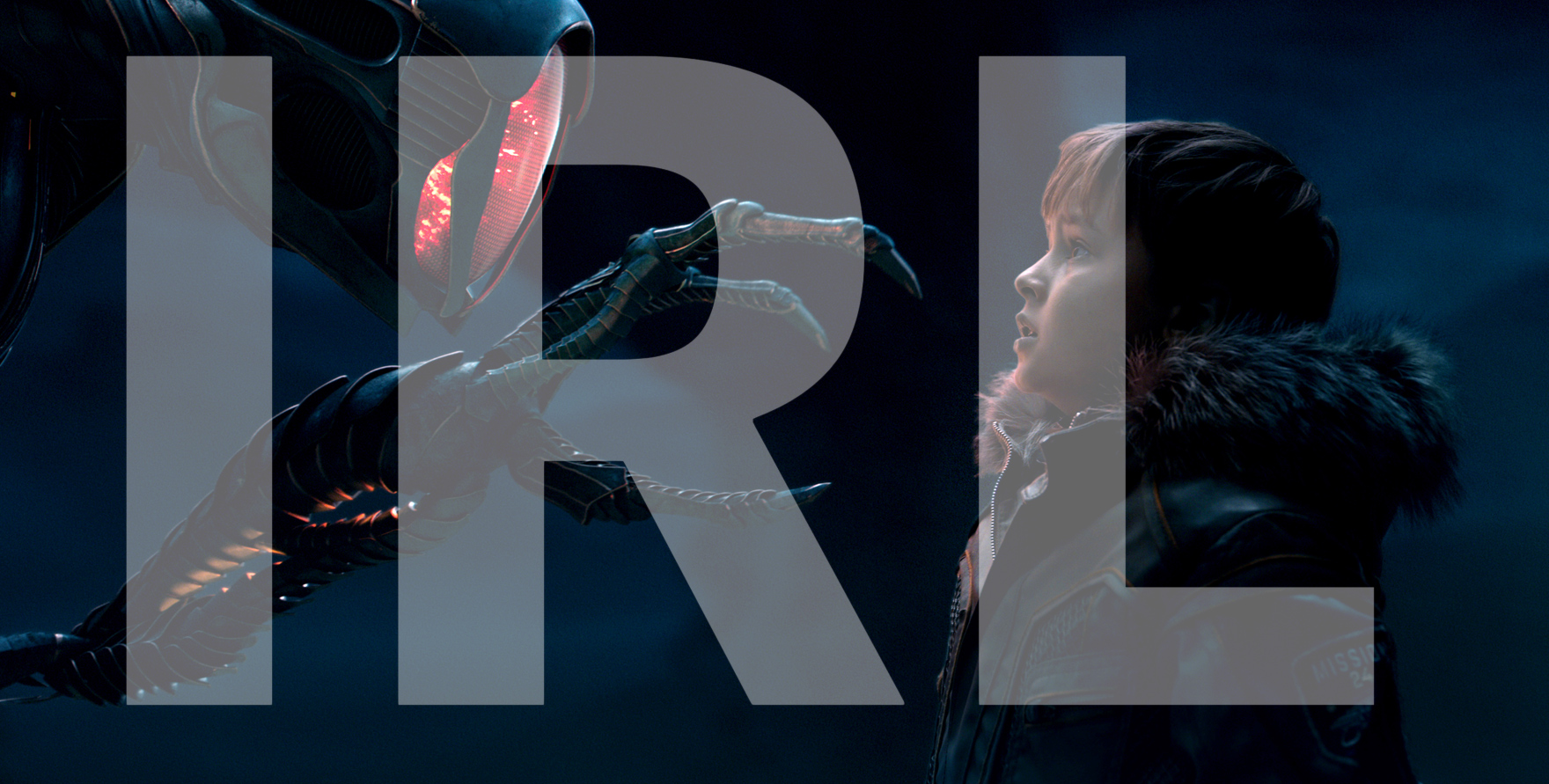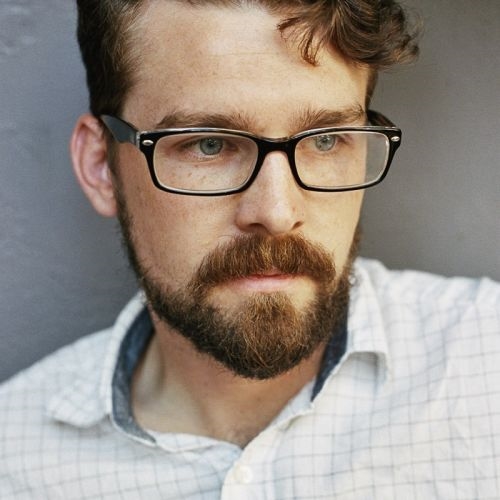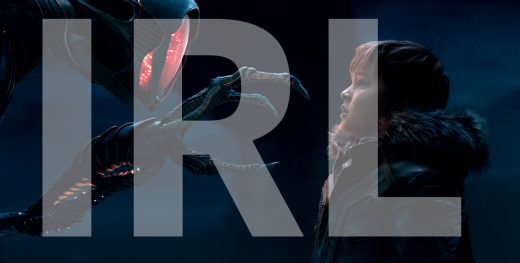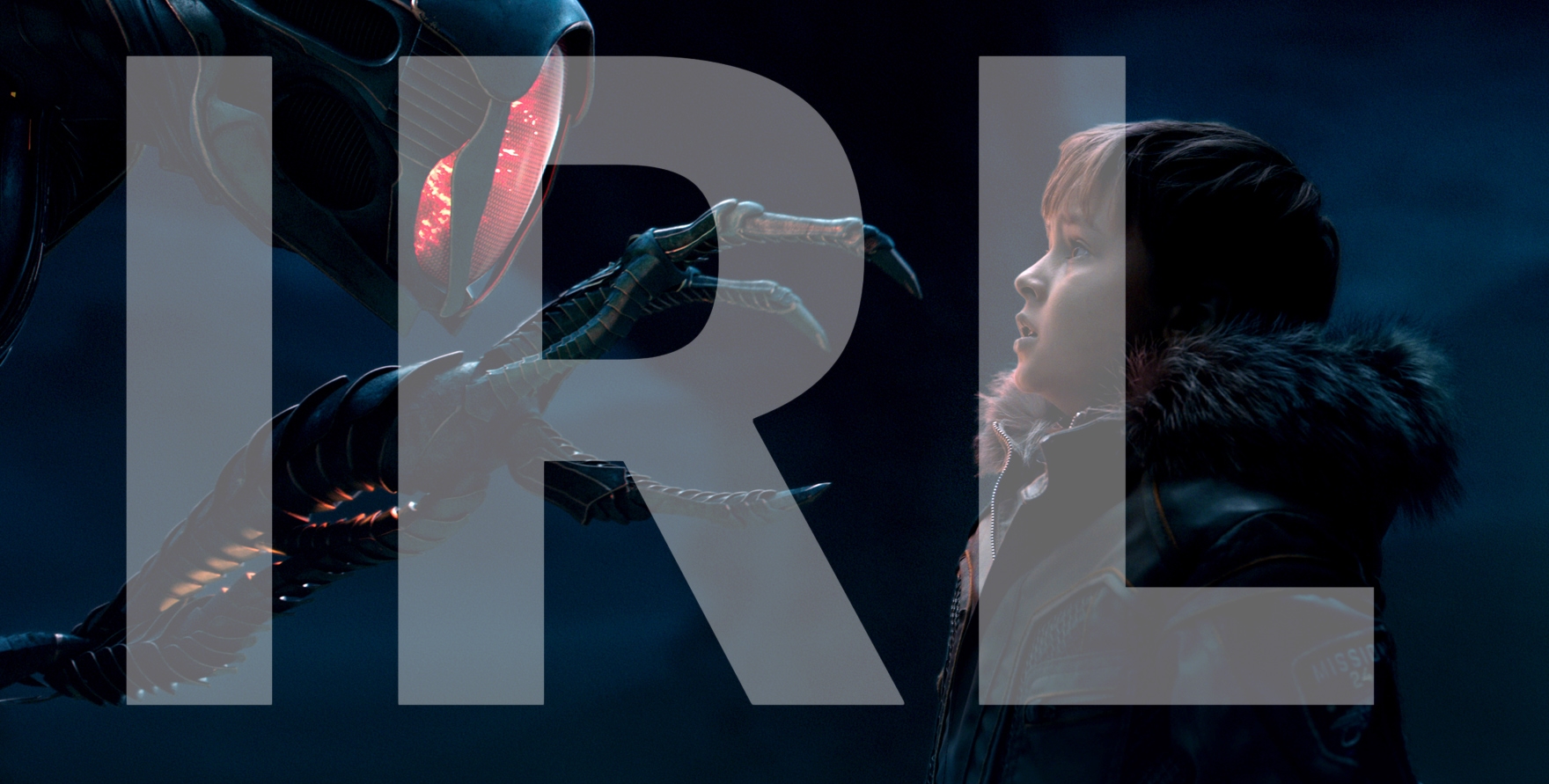What we’re watching: ‘Avengers: Infinity War’ and ‘Lost in Space’

This week’s IRL heads to the theater, where the latest Marvel flick is setting box-office records. Find out how several of our editors felt about it (spoiler-free, although we can’t guarantee anything about the comments section below), as well as our thoughts on a few new series from Netflix, Hulu and HBO.
Lost in Space

Rob LeFebvre
Contributing Writer
It’s been quite a while since I watched the original Lost in Space, but something tells me its weird mashup of sixties-style drama and campy sci-fi doesn’t hold up too well. When I was a kid devouring as many reruns of the show as possible, I identified with Robbie the Robot, because, well, we had the same name. In the current reboot of the show, currently streaming on Netflix, I connect more with the parents. Lost in Space is now a family drama that brings all the modern complexity of human relationships to the crash-landed colonists whose journey was interrupted by a catastrophe on the mothership en route to Alpha Centauri. How do you keep your kids (or yourselves) safe when that happens?
Without spoiling too much of the plot, I’ll say that the first episode caught my attention immediately. From the zero-gravity card game to a horrifying scene in which the oldest Robinson daughter gets frozen in place after brashly diving down to the crashed family spaceship — and let’s not forget the beautiful bonding of the youngest child and the new, unpredictable alien robot (Danger, Will Robinson, indeed) — I was hooked.
The plots of the individual episodes are a little loose at times, and the tone of the show varies wildly; season 2 would do well with some tightening up in these areas. The stellar acting, however, makes up for it. Molly Parker is fantastic as engineer mom Maureen Robinson; her competence at holding things together just barely keep her family intact. Parker Posey is spot-on, too; her take on the morally ambiguous Dr. Smith makes the show worth watching on its own. The children are decent, though Maxwell Jenkins’ Will Robinson may be the least watchable — his robot gives a more compelling performance, to be honest. Middle child Penny (played by Mina Sundwall) is as impetuous as she is kind; her portrayal adds a necessary warmth and sparkle to the ensemble cast. Taylor Russell plays 18-year-old Dr. Judy Robinson as plucky yet vulnerable; her breakdown while encased in ice is a highlight of the role. While it took me a few episodes to warm up to Taylor Russell’s absentee father John Robinson, the subsequent thawing of his soldier persona has made him a more relatable character. Ignacio Serricchio plays pilot Don West as a lovable smuggling rogue with a heart of gold; the role is familiar to anyone who’s seen Han Solo or Guardian Peter Quill, but Serricchio is able to play both sides of his character nicely.
It’s good to see a sci-fi television show that’s able to appeal to both adults and children. If you loved Earth 2, you’d dig this one. It’s also fantastic to have a more nuanced take on the realities of being a family, with parents who struggle to manage their relationship while they still work together to take care of their kids. Having more colonists involved is a nice change, too. Is it perfect? No, but it does fill a hole in the current sci-fi television oeuvre with a less gritty, still thrilling take on the genre. The mysteries at the center of the show (Who is this robot? Why did we crash? When will they see through Dr. Smith’s BS?) are compelling enough to keep bingeing one episode after another; the solid acting and superb production values are just extra reasons to give this one a try.
The Looming Tower

Billy Steele
Senior News Editor
It can be tough to watch movies and television that remind us of dark times in history. And I’ll admit, I wasn’t prepared for the feels I’d get from watching Hulu’s The Looming Tower series. The miniseries is based on the Lawrence Wright book of the same name, chronicling the work of the FBI’s I-49 squad in NYC and the CIA’s Alec Station in Washington, DC. The general premise both the book and the show assert, based on actual accounts (the book is nonfiction), is that if the FBI and the CIA shared intelligence and resources, perhaps 9/11 could’ve been avoided.
There’s no way to know that, of course, but The Looming Tower doesn’t need to prove it. Instead, it offers an eye-opening look into how US agencies tracked and investigated Al Qaeda following events like US embassy bombings in Tanzania and Kenya and the attack on the USS Cole in Yemen. It also tells a bit of the story from the other side, offering a view into the mindset of Osama bin Laden and his followers. The result is gripping television, even though you know exactly where the story is headed.
The Looming Tower has powerful performances by Jeff Daniels (John O’Neill) and Peter Sarsgaard (Martin Schmidt) as the heads of the FBI’s I-49 and the CIA’s Alec Station, respectively. Despite that duo being among the biggest names on the cast list, Tahar Rahim’s role as Muslim Lebanese-American FBI agent Ali Soufan is the best on the show. As Soufan, Rahim has to battle with staying true to himself while also doing his job. He’s continually called on to travel abroad — primarily because he speaks Arabic. He takes offense to the perversion of Islam and even goes undercover in spots where Al Qaeda gather to try and obtain intel.
The show also offers a look into the personal lives of these people. You get an up-close look at O’Neill’s personal finance problems, caused mostly by the fact that he’s having multiple affairs. There’s also Soufan’s budding romance with an American teacher, which is regularly interrupted by calls for him to hop on a plane. And then there’s the professional dark side, a place where I-49’s repeated requests for information are shut down by Alec Station — almost always directed by Schmidt.
The suspense of knowing what’s coming and wanting to know what happened immediately beforehand makes for some very compelling viewing. At 10 episodes, the miniseries never seems to drag or hit a lull, like some 13-episode (or more) seasons tend to do. And yes, at times it’s infuriating to the point that it’s hard to watch — like some of the remarks from national security adviser Condoleezza Rice during intelligence briefings for George W. Bush. I chalk all of that up to some A-plus performances across the entire cast (Wrenn Schmidt is also very good as CIA analyst Diane Marsh) and the source material. Take the most significant terrorist attack on US soil, toss in a compelling narrative about how government intelligence made some mistakes and add some great performances. The result is one of the best originals from Hulu thus far.
Barry

Timothy J. Seppala
Reporter
When I first saw trailers for Barry on HBO, I wasn’t sure what to make of the network’s new dark comedy. I’ve never been Bill Hader’s biggest fan, but generally, when he winds up in something like Superbad or an SNL rerun, I’m happy to see him. He was great opposite Amy Schumer (and LeBron James) in Trainwreck, too, and he brings the same type of awkward everyman approachability to the title role here.
Barry stumbled into an LA acting class while shadowing a target for the Chechen mob, fell for the plucky blonde with stars in her eyes (Sarah Goldberg) and decided that contract killing was no longer the life for him. It’s too bad, then, that he can’t emote in front of an audience and his handler (Stephen Root) keeps assigning him contracts. Killing someone with his bare hands is easy compared with running lines from Macbeth. Barry’s calm and ruthlessly efficient with a weapon, too, but when his acting teacher (Henry Winkler) assigns him Alec Baldwin’s monologue about “closers” from Glengarry Glen Ross, it’s like watching in horror as a two-year-old fumbles with a .45. Speaking from the heart is a different story, though, and it’s enough to get him a second shot at joining the class.
Everyone in class is relentlessly supportive of one another, at least on the surface, offering Barry help running lines and just hanging out in general. It reminds me a lot of how a friend’s improv troupe gets on in real-life LA. There’s definitely a queen bee, and now, roughly halfway through the season, cracks in the group’s dynamics are coming to light.
Barry wouldn’t be nearly as effective if it weren’t for its cast of supporting characters. My personal favorites? Bumbling Chechen mobster Goran Pazar and his bald henchman NoHo Hank. The former tortures enemies in his garage but gets yelled at by his wife because the screams are disrupting their youngest daughter’s slumber party. Think Tony Soprano meets Archie Bunker and you’re halfway there. NoHo Hank, on the other hand, unwittingly uses smiling Bitmoji to confirm hits via text message and left a lipstick camera at the scene of a crime.
The show is full of smaller roles like this, and they’re what makes Barry so endearing. All the principals are trying to better themselves in some way, denying their programming to pursue something that makes them happy. In Barry’s case, it’s acting. For Goldberg’s Sally, it’s overcoming Hollywood’s salacious business practices and standing up for herself. The Chechen mobsters struggle to keep their kids and wives happy while maintaining the family business and keeping quiet in the garage.
Subplots like seeing how long NoHo Hank can outrun his own idiocy, or watching Barry’s acting chops develop at a lethargic pace are more interesting than his potential arrest. Slowly, as the tale of a hitman who wants out of his day job has unfolded week after week, it’s become the show I look forward to most come Sunday night. Or, to be 100 percent accurate, Monday afternoon.
Avengers: Infinity War

David Lumb
Contributing Editor
Six years ago, the first Avengers film fit half a dozen A-list superheroes into a cohesive two-hour plot and was hailed as an unprecedented success. The movies have only gotten bigger and more connected since, and Avengers: Infinity War folds in nearly two dozen heroes and side characters from the 18 previous films of the Marvel Cinematic Universe. As such, a lot happens, and the film doesn’t slow down, so get ready for a hero mashup roller coaster of epic proportions. But in efficiently translating universe-spanning comics events to film, Avengers: Infinity War also inherits their faults: Emotional beats get rushed off-screen, the franchise-mixing suffers from tonal friction and the villain’s thin motive and plan are (once again) the weakest parts of an Avengers film. But who cares? It’s a heckuva ride, with a scale of spectacle unrivaled in film. See it before the shocking parts get spoiled.
Avengers: Infinity War

Cherlynn Low
Reviews Editor
Breathtaking, heartbreaking and draining, Infinity War is a deeply emotional ride that had me cringing, cheering and cowering throughout. Ultimately, it left me overwhelmed, looking for words that I’m not sure exist. But, like, in a good way — the way evocative movies stay with you long after the initial catharsis wears off.
You may also have heard this from others, but this felt very much like a Star Wars movie. Do other moviegoers a favor, though: If you’re not up to speed on the MCU’s latest developments, please catch up before going to see IW in theaters. This is a film that relies heavily on its established history, and it was annoying when the poor guy next to me had to keep explaining things to his partner, especially at the tensest moments. If you’re a Marvel fan, this is a must-see. Conversations from now until the sequel’s release next year will be dominated by what happened here, and you can’t escape the spoilers forever. Watch it ASAP and prepare to have your world(s) rocked — no: shaken to its very core.
Avengers: Infinity War

Devindra Hardawar
Senior Editor
Avengers: Infinity War is a lot. It’s an ambitious attempt at uniting the entire Marvel Cinematic Universe, which includes 18 films and a slew of superheroes. So, not surprisingly, everything feels a bit rushed. Characters we’ve known for years meet for the first time and get killed off in the blink of an eye. Thanos’ quest for the Infinity Stones feels almost like a video game, going level by level, with increasing amounts of collateral damage. And while the film makes room for the quirky quips we’ve come to expect from Marvel’s heroes, they sometimes feel obligatory.
It’s a long film, at two and a half hours, but, paradoxically, it likely would have been stronger if it had even more room to breathe. That would have given the big dramatic moments more time to shine, instead of feeling like we’re jetting from plot point to plot point. That’s not to say there’s nothing to enjoy — the epic throwdowns are glorious, and at times it feels like a fever dream for comic geeks. But Infinity War is like watching a supercut of a season of TV, instead of a coherent movie, like the first Avengers film (or even the much maligned Age of Ultron). By the end, you’ll either buy the stakes Marvel is throwing down or roll your eyes at the false drama of it all, thanks to a follow-up film already set to arrive in 2019.
“IRL” is a recurring column in which the Engadget staff run down what they’re buying, using, playing and streaming.
(43)



